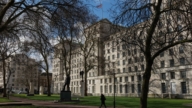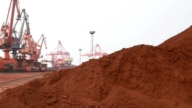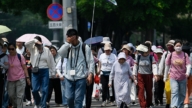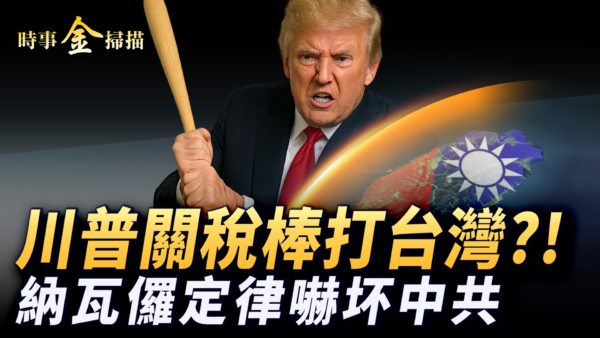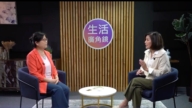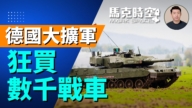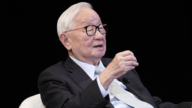【新唐人2012年11月19日讯】在美国大选和中共18大相继落下帷幕之后,美国总统奥巴马开始进行连任之后的首次出访,目地是对于美国重返亚太战略至关重要的东南亚,包括与中共越来越疏远的缅甸。中共喉舌对此反应强烈,指称奥巴马此行是在“挖墙角”。分析人士则指出,美国希望东盟摆脱中共干扰,真正发挥作用。
17号,奥巴马启程出访泰国、缅甸及柬埔寨三国,并将出席20号在柬埔寨首都金边举行的第21届东盟峰会。与奥巴马几乎同时奔赴东南亚的,还有美国国务卿希拉里•克林顿和国防部长帕内塔。
中共喉舌对奥巴马一行反应强烈,报导声称,泰国、缅甸及柬埔寨这三个与中共亲近的国家,干扰了美国重返亚太战略,奥巴马此行旨在挖中共墙脚,削弱中共对东南亚的影响力。
时事评论家文昭:“挖墙脚的意思就是说,中共以前在这一地区下了不少力气。比方说缅甸,它(中共)长期支援缅甸军政府;再比如说柬埔寨,它提供了巨额的低息贷款,来扶持柬埔寨。就是说它在这一地区还是下了不少力气,来拉拢这些国家。”
资料显示,东南亚一带的马六甲海峡可以北上日本及朝鲜半岛,南下直通澳大利亚,地理位置非常险要。二战时,美国和日本就曾为此在南太平洋激战。上世纪60年代,美国开始在东南亚构建包括泰国、印尼、马来西亚、新加坡和菲律宾等国在内的东盟组织,力图隔离越南、中国大陆和苏联的共产党红色政权。目前东盟拥有10个成员国,两年前与中国建立自由贸易区。
时事评论家文昭分析指出,由于中共对东盟成员泰国、缅甸、柬埔寨等国的长期拉拢,造成东盟很难在一些重要事务上形成统一意见。奥巴马此行的目地就是为了调和东盟内部关系,使东盟真正发挥作用。
文昭:“美国的利益来讲,它是希望东盟成为一个凝聚力比较强的、在关键的地区事务上能够形成一个统一意志的、能够形成一个共同意见的国际组织。中共就不希望这种情况发生。”
奥巴马此次东南亚之行,恰逢中美两国刚刚完成最高权力交接。因此,有大陆媒体认为,美国是有意选择东南亚作为奥巴马连任后的首次出访地。
文昭:“东南亚是它(美国)整个亚太战略中比较重要的一部分,只不过是前段时间由于总统大选,对他竞选连任优先性更强,所以暂时把它(出访东南亚)放在后面了。他一旦连任成功以后,这个压力消失以后,他还得按部就班、照他以前定的方略去做。”
文昭谈到,美国重返亚太有政治、经济和军事上全方面的考虑。目前亚太是全球经济最有增长潜力的地区,美国作为亚太国家之一,希望参与到亚太经济成长的过程中,从而维持美国的经济繁荣。此外,美国将把一半以上的战舰部署在亚太,以防止中日、台湾海峡、南海等热点争议地区出现大的战争和动荡,影响全球经济安全。在政治上,美国也希望加强对亚洲包括对中国大陆的影响力。
奥巴马对缅甸和柬埔寨的访问,使他成为美国历史上首次造访这两个国家的总统。香港《东方日报》报导,泰国民间对奥巴马来访反应积极,认为这将提升两国关系。根据日程,奥巴马将与缅甸反对党领导人翁山苏姬会面,力图促进缅甸民主进程。奥巴马还将会晤出席东盟峰会的中共国务院总理温家宝以及日本首相野田佳彦。
采访/刘惠 编辑/李谦 后制/肖颜
Obama’s Asia Tour Accused of Undermining CCP Regime
After the U.S. presidential election and ending of the Chinese
Communist Party (CCP) 18th Congress,
U.S. President Barack Obama started his first post election
international trip Obama’s Asia tour covers Southeast Asia,
an essential area in its Asia-Pacific Strategy. This includes Burma,
which has increasingly alienated itself from the CCP regime.
CCP mouthpiece media reacted strongly over the issue,
alleging Obama is undermining CCP influence over there.
Political observers say that the U.S. intends to help ASEAN
to truly play its role by getting rid of interference from the CCP.
President Obama has begun his visit to Thailand,
Burma and Cambodia.
He is scheduled to attend the 21st ASEAN Summit held
in Cambodia on November 20.
Secretary of State Hillary Clinton and Secretary of Defense
Leon Panetta accompany Obama on the trip.
Obama’s Asia trip has incurred strong reaction from
the CCP official media have asserted that
the three pro-CCP Countries have interfered with
U.S. return to Asia-Pacific strategy.
And that Obama’s visit aims at undermining CCP
Influence over Southeast Asia.
Critic Wen Zhao: “In the past, the CCP has made great effort
to dominate this region.
For example, the CCP is in long-term support of
the Burmese military government.
The CCP has also offered huge amounts of low-interest loans
as back up to the Cambodian authorities.
All these efforts have been made to woo these countries."
The Malacca Strait, with its commanding position, connects
Japan, the Korean peninsula and Australia.
During World War II, the U.S. and Japan staged a war
to grab control of this key area.
In the 1960s, the U.S. started to form ASEAN, covering
Thailand, Indonesia, Malaysia, Singapore the Philippines.
Its goal was to separate this region from Communist states
including Vietnam, mainland China and the former Soviet Union.
So far, ASEAN has 10 member states, and two years ago,
the China-ASEAN free trade area came into effect.
Wen Zhao says, the CCP has long roped in these ASEAN
member states.
This has created difficulty for ASEAN to achieve consensus
over some important issues.
Obama’s South Asia tour is to reconcile intra-ASEAN
relations and make ASEAN really work.
Wen Zhao: “The U.S. intends ASEAN to play a role in uniting
Asian countries to reach consensus over important regional issues.
This is against the CCP’s wishes."
Obama’s Asia trip has only recently been staged after
completion of the power transition in both countries.
China’s media has asserted that the U.S. intentionally
chose Southeast Asia as Obama’s first post-election visit.
Wen Zhao: “Southeast Asia is an important part of
the entire U.S. Asia-Pacific strategy.
The trip to the region was put aside due to the U.S.
presidential election.
So after Obama got re-elected, he still follows prescribed
policies to make that trip."
Wen Zhao analyzes that the U.S. return to the Asia-Pacific
region is based on economical, political and military considerations.
The region is deemed an area with the greatest potential
for growth. The U.S. is a signatory of the pact between Asia-Pacific countries.
By taking part in the region’s economic growth, the U.S. wants
to maintain its own prosperity, Wen Zhao remarks.
The U.S. deployment of over half of its warships to the region
aims to prevent the occurrence of large-scale war or
unrest in the region, which would impact
global economic security.
Wen Zhao interprets that the U.S. also intends to strengthen
its political influence over Asia, including mainland China.
Obama’s trip to Burma and Cambodia has made him
the first U.S. President to visit the two countries.
Hong Kong’s Oriental Daily newspaper reported on
the positive response given by the Thai people to Obama’s visit.
It said that this trip will improve US-Burma relations.
Obama is scheduled to meet Aung San Suu Kyi,
Myanmar’s opposition leader, to promote country’s democratic process.
The US president is also expected to meet CCP Premier
Wen Jiabao and Japanese Prime Minister Yoshihiko Noda at the summit.


